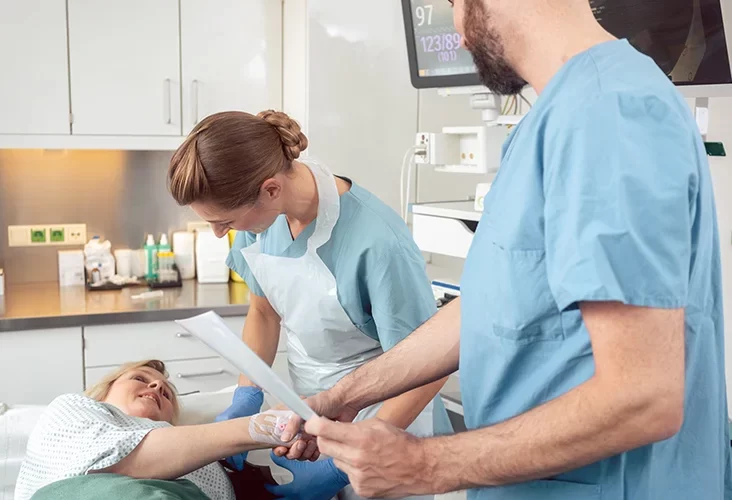Colonoscopy is a common medical procedure used to examine the inside of the colon and rectum for abnormalities or signs of disease. While it is an important screening tool for colorectal cancer, it can also be uncomfortable and cause anxiety for some people. In this article, we will explore some tips for managing discomfort during a colonoscopy.
Follow the Preparation Instructions
One of the most important ways to manage discomfort during a colonoscopy is to follow the preparation instructions carefully. This typically involves a clear liquid diet and taking laxatives to empty the colon. While this can be uncomfortable, it is important to follow the instructions to ensure that the colon is properly cleaned out and the procedure is successful.
Talk to Your Healthcare Provider
It is important to talk to your healthcare provider about any concerns or questions you have about the procedure. They can provide information about what to expect during the procedure and offer strategies for managing discomfort. In addition, they can provide medication to help manage discomfort during the procedure, such as sedatives or pain relievers.
Practice Relaxation Techniques
Relaxation techniques, such as deep breathing or meditation, can be helpful for managing anxiety and discomfort during a colonoscopy. Practicing these techniques before the procedure can help you feel more calm and relaxed during the procedure.
Wear Comfortable Clothing
Wearing loose, comfortable clothing can help you feel more relaxed and comfortable during the procedure. It is also important to avoid wearing jewelry or accessories that may interfere with the procedure.
Request a Sedative
If you are feeling anxious or uncomfortable during the procedure, you can request a sedative from your healthcare provider. Sedatives can help you feel more relaxed and comfortable during the procedure. However, it is important to follow the instructions for the sedative carefully and arrange for someone to drive you home after the procedure.
Practice Distraction Techniques
Distraction techniques, such as listening to music or focusing on a relaxing image, can be helpful for managing discomfort during a colonoscopy. Some healthcare providers may even offer virtual reality goggles to help distract patients during the procedure.
Communicate with Your Healthcare Provider
It is important to communicate with your healthcare provider during the procedure if you are experiencing discomfort. They can adjust the procedure or provide medication to help manage discomfort. It is important to remember that the procedure is important for your health and well-being, and your healthcare provider is there to support you and ensure your comfort during the procedure.
Plan for Aftercare
After the procedure, it is important to plan for aftercare to manage any discomfort or side effects. This may include taking pain relievers, eating a light diet, and resting. It is also important to arrange for someone to drive you home after the procedure, as sedatives can impair your ability to drive.
Conclusion
Managing discomfort during a colonoscopy is important for ensuring a successful procedure and reducing anxiety. Following preparation instructions, talking to your healthcare provider, practicing relaxation techniques, wearing comfortable clothing, requesting a sedative, practicing distraction techniques, communicating with your healthcare provider, and planning for aftercare are all strategies that can help manage discomfort during a colonoscopy.
It is important to remember that the procedure is a crucial screening tool for colorectal cancer and other conditions, and working with your healthcare provider to manage discomfort can help ensure a successful procedure and improve outcomes.

